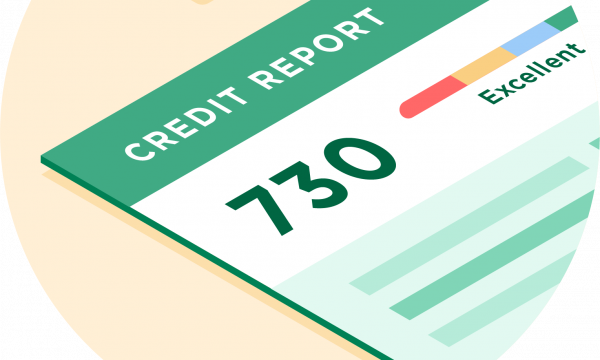What Is a Credit Reference?
A credit reference is information used by lenders, landlords, utilities or employers to evaluate your payment history and creditworthiness.

Many, or all, of the products featured on this page are from our advertising partners who compensate us when you take certain actions on our website or click to take an action on their website. However, this does not influence our evaluations. Our opinions are our own. Here is a list of our partners and here's how we make money.
A credit reference is typically a document that can provide information about whether you pay your bills on time. It's commonly used when you apply for credit, rent an apartment or set up utilities, and it gives companies confidence that they are making an informed decision about your application.
In practice, a credit reference usually means either:
- An account on your credit report, such as a loan, credit card or utility account, that shows how you’ve handled payments.
- A landlord or service provider listed on an application who can confirm your payment history.
A credit reference is not a character reference or a credit score.
Credit references for potential tenants
If a potential landlord asks for credit references, they might be looking for information from companies or landlords that have rented to you before.
Or, the potential landlord might want your permission to pull a tenant screening report, which has information on your behavior as a renter, such as on-time rental payments, evictions or collections. Landlords can use that information to make decisions about your application or require a deposit.
Consumer reporting companies — including companies that do tenant screening and traditional credit checks — are required by the Fair Credit Reporting Act to give you a free copy of your report every 12 months if you request it. If you see errors in your tenant report, you can dispute them.
In this context, a “credit reference” may also simply mean a credit report, which shows your bill payment history.
Stress less. Track more.
See the full picture: savings, debt, investments and more. Smarter money moves start in our app.
Credit references for utilities
Utility companies may use credit references, including traditional credit scores, to decide whether you need to pay a security deposit — and if so, the amount.
Some industries rely on specialized scoring models, such as Experian TEC Connect, to assess creditworthiness rather than a traditional credit score.
A utility company may accept a “letter of credit” to waive a security deposit if the customer has had utilities before. A letter of credit can be requested by a former customer of a utility. It’s typically printed on letterhead stationery and includes account number, payment history, dates and balances.
If your payment record is strong, submitting a letter of credit could help waive or reduce a required deposit.
Credit references for borrowers
When you apply for a credit card or loan, the credit references usually come from one of the three major credit bureaus: Equifax, Experian and TransUnion.
Lenders might look at your credit report, which shows your account history and payment behavior, or your credit score, which is a number calculated from the data in your credit reports. While your credit score and credit report are related, they are two separate pieces of financial information.
Creditors may use one or both to evaluate your application, along with other factors such as your income, debt-to-income ratio and assets.
Credit references for employment
In some states, employers are allowed to check a modified version of the job applicant's credit report as part of the hiring process, and those might reasonably be called a credit reference.
Employers must have your written permission to access your credit reports, and the version they receive doesn't not include without account numbers, birth year or marital status.
How to check your credit references
Before you give permission for a credit check, it's smart to review what a lender, landlord or potential employer will likely see. Be prepared to explain any negative marks, like missed payments, collections or bankruptcies.
You can get free weekly credit reports from each of the three major credit bureaus at AnnualCreditReport.com.
Many credit card issuers and banks offer free credit scores, and you can access them from many personal finance websites, including this one.
» Get started: Access your free credit score from NerdWallet
Stress less. Track more.
See the full picture: savings, debt, investments and more. Smarter money moves start in our app.
Article sources
NerdWallet writers are subject matter authorities who use primary,
trustworthy sources to inform their work, including peer-reviewed
studies, government websites, academic research and interviews with
industry experts. All content is fact-checked for accuracy, timeliness
and relevance. You can learn more about NerdWallet's high
standards for journalism by reading our
editorial guidelines.
Related articles










